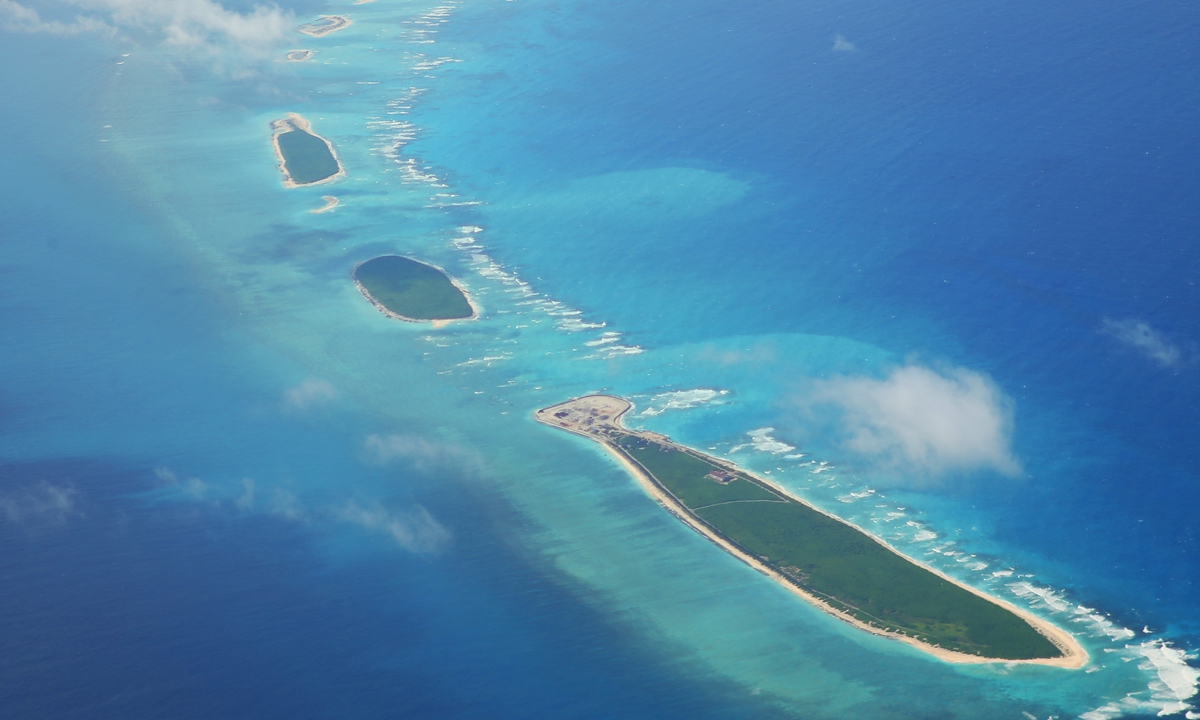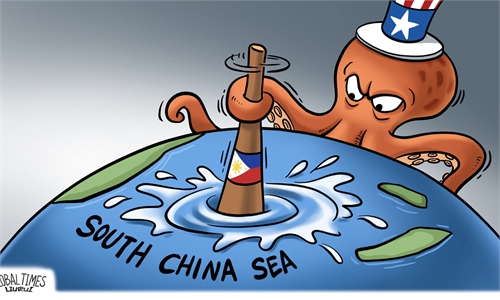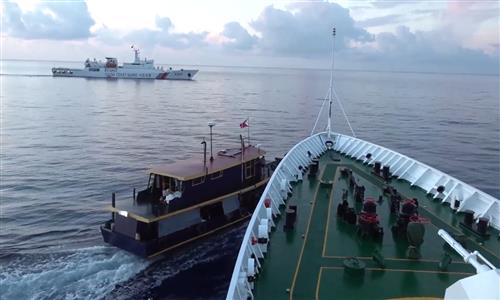
An aerial view of Qilianyu Islands in Sansha, South China's Hainan Province. Photo: VCG
Last week, a joint statement was issued by the EU-ASEAN Ministerial Meeting, stating that the two sides emphasized the universal and unified character of the UNCLOS, and reaffirmed the importance of maintaining and promoting peace, security, stability, safety, and freedom of navigation in accordance with international law, including UNCLOS.Some commentators hold that the statement on the South China Sea issue was meant to "provoke China." However, the statement is more about the common interests of the regional states as well as other stakeholders, such as the EU. Besides, those common interests are also the common understanding of China and ASEAN members.
The EU-ASEAN statement is consistent with the ASEAN Foreign Ministers' Statement on December 30, 2023. Both statements emphasize the shared commitment to maintaining peace, security, and stability in the region, as well as the peaceful resolution of disputes. They also encourage parties to "exercise self-restraint in the conduct of activities." Additionally, they both underscore the importance of the full and effective implementation of DOC and early conclusion of an effective and substantive COC. Thus, the EU-ASEAN statement not only reveals the EU's respect for ASEAN's interests and policies, but also reflects the common interests of both regional states and the EU.
It is worth noting that these common interests align with China's own interests. China consistently advocates for upholding the rule of international law, respecting freedom of navigation in and overflight in the South China Sea as outlined in the universally recognized principles of international law, including UNCLOS, resolving disputes by peaceful means and exercising self-restraint. It is important to highlight that territorial and maritime disputes have not affected the freedom of commercial navigation in the South China Sea for a long time, and even military navigation that adheres to international law has been respected. Moreover, China has consistently urged for the maintenance of peace and stability in the region, as well as the full and effective implementation of the DOC. For more than 20 years, China's adherence to the DOC has played an essential and crucial role in maintaining peace and promoting prosperity in the South China Sea. Furthermore, China has acted as the propulsor of the COC consultation in the past five years.
China also welcomes the importance of UNCLOS and plays a key role in the development of the Convention and the legal regime of the law of the sea. This includes involvement in the negotiation and conclusion of the High Seas Treaty; addressing issues such as sea level rise, deep sea minerals exploitation, freedom of fishing and marine protected areas in the high seas. China acknowledges that UNCLOS establishes general rules that are universally applicable, but exercises caution when scholars draw analogies with domestic constitutions. China argues that the UNCLOS does not automatically prevail over other agreements and general international law. China also emphasizes the need for appropriate and unbiased interpretation and application of UNCLOS. This position is not only based on the fact that the term "constitution for the oceans" is not involved anywhere within the text of UNCLOS itself, but also is consistent with Paragraph 8 of the Preamble of UNCLOS. Besides, an overemphasis on the "constitutional" character of UNCLOS would hinder the development of the international law of the sea.
Thus, it is in the common interest of the region and the EU to maintain and promote peace, security, stability, safety, and freedom of navigation in accordance with international law, including UNCLOS. To reach this goal, China and the ASEAN members shall fulfill their commitments under the DOC and international law, including UNCLOS. Relevant countries should stop the tricks and unilateral activities that aim to change the status quo, as these actions only serve to increase tensions and raise the risk of accidents, misunderstandings and miscalculation. Examples of such actions include resupply missions to the Ren'ai Jiao and provocative actions in Huangyan Dao. Besides, states outside the region should respect the efforts of regional states, and not feign impartiality while actually supporting one side. With the joint efforts, the South China Sea can become a peaceful and prosperous region.
The author is professor of international law, China Boundary and Ocean Studies(CIBOS) at Wuhan University. opinion@globaltimes.com.cn



